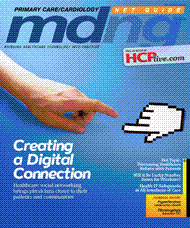Publication
Article
MDNG Primary Care
Second Opinions: Physicians Talk Healthcare Reform with Patients
Given that healthcare reform is such a contentious subject in the United States, it is not surprising that conflicts have arisen between physicians and patients who hold different views and who aren’t shy about discussing those opinions in the examination room.
Given that healthcare reform is such a contentious subject in the United States, it is not surprising that conflicts have arisen between physicians and patients who hold different views and who aren’t shy about discussing those opinions in the examination room. We recently posted on HCPLive.com an article that addressed this issue and invited readers to share their thoughts and comments about whether physicians should discuss healthcare reform with their patients.
As a physician who blogs on healthcare reform, I believe it is crucial for every citizen to become informed on the subject. Nevertheless, I consider it inappropriate for any physician to use clinical encounters to promote his/her own views on any potentially controversial subject. It may damage the rapport needed for best outcomes, and the doctor-patient interaction is not always viewed as equal. I applaud physicians for becoming active on this topic, whatever their views, but not in that way.
-- Coffee Brown, MD
It is totally inappropriate for a physician or practitioner to provide opinions, political information, or partisan materials to patients in a care setting, no matter the opinions of either party. This would constitute taking advantage of vulnerable patients in their weakest moments. If asked, the physician would have the right to answer honestly. But this response should not consume significant time needed for the patient’s care. There is no place for the “bully” exam room or the “bully” waiting room in our care of our patients.
-- Haywood Gilliam, MD
I would not broach the topic with patients unless they asked me my opinion, and then I would be careful with my remarks. I was trained in the UK, liked the NHS, and feel that the vast majority of Americans would benefit from healthcare reform that opened up access and offered a public option. However, I was very surprised recently when I went in for a routine endoscopy and, during the pre-sedation check, on hearing my accent, the anesthesiologist asked, in an aggressive tone, “When are you planning to go back to England to enjoy all that socialized medicine?” Now that is crossing the line!
-- Robert W. Wilmott, MD
I have been in practice for 56 years and almost all of my patients are long-time friends. With few exceptions, these patients are against more government intervention in healthcare economics. When they bring up these issues, I wait until the professional session is ended and then talk to them like they are my best friends. They need to get their concerns (anxiety) answered truthfully, which is part of their medical care and needs. If I don’t do this, then I have failed my duty to do all that I can to be a medical servant to said patient.
-- Clyde Morgan, MD
First, it is very interesting to me that HCPLive confuses “healthcare” (which to most, at least, means “clinical care”) and “healthcare coverage/reform.” It suggests how much the two very different issues have become conflated in the current debate. The practice of clinical medicine has become overtly politicized as we all worry about resources and agendas... Perhaps this is what PQRI is really about; we all worry, especially because many of us do not do a great job in defining and defending what we do. Second, I think that physicians must approach issues of healthcare reform in the office and wherever else they can. Physicians are now, and always have been, knowledge workers in the Drucker sense. Not flattering? Then doctors will pay in blood and treasure to maintain that artifice of “the profession.”
-- David Block, MD, PhD





